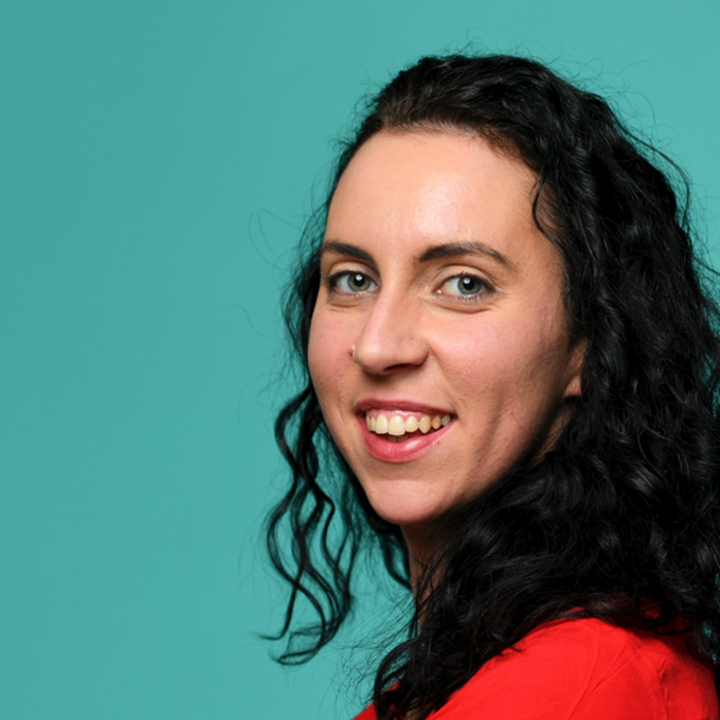Tell us a bit about yourself.
Hi! I’m Ana and I work as Head of International Developer Relations at Auth0. I got into developer relations for several reasons, but the main ones were to give back to the community and to (hopefully) inspire women and girls around the world who want to get into tech. I strongly believe the tech world can do better: We need more diversity and we need to be much more inclusive.
I have a degree in Fine Art and it’s something I am still passionate about. Even though I do not have a lot of time to create art, I try to visit museums and galleries whenever I have the chance. For me, coding and painting aren’t that different - In both scenarios you have a white canvas that you will fill with content. Also, the art I used to create was more on the installation side and also quite technical.
My biggest passion and what I dedicate most of my time to are my 2 amazing kids who never fail to surprise and entertain me. That being said, I would not be able to do what I do without the help and support of my incredible partner Eoghan Henn.
What do you feel is the most important part of your job?
Being a manager of a developer relations team includes a lot of important tasks, such as making sure we never lose our main focus of helping the developer community, maintaining an event strategy, as well as all the “manager things” like headcount and budget. But for me, the most important part of my job is that my team can always count on me.
When I started the transition into this managerial position, I quickly realised that I cared more deeply about my team and their growth than I did about my own. For them to be able to thrive, I always want to make sure that they are supported, that they have a safe space to work and ask their questions and that they are able to come to me about anything and everything.
So the most important part of my job, to me, is creating that safe space for my team but also helping them grow, making sure that they do not have too much on their plates and that they enjoy their jobs.
What is something you’re struggling with?
Something I’ve been struggling with is saying no to speaking at all the events. In my new role I just do not have the time to continue doing an event or more every month, and it’s also not the core part of my role anymore. I recently had to ask one of my colleagues to take on a talk that I had accepted because of this. It was a life lesson for me as I felt awful for my colleague and for the event organisers.
But some good came out of it and it was that I have learned a valuable lesson and I will be mindful about what events I accept in the future. A part of me felt like I am letting down the community by not being on stage and giving a talk, or being on a stream, but I have come to terms with the fact that if I help my team, my team can help the community more than if I were to try to do it alone. Also, I will still go to an event or two, just not at the same capacity as I could before, and I will contribute in other ways too.
What do you look for when building your team?
Diversity. Which comes in all shapes and sizes. The more diverse the team, the better. There are many factors that contribute to diversity, but I first look for people who come from different cultures, races, or genders. Then I want people who will bring diversity to the programming and spoken languages we have already on the team.
But I don’t stop there because I believe the key to having an inclusive team is to have empathy and that’s something I look for in a person who will be joining our team. This does make the process of hiring someone take longer but it is 100% worth it.
I’ve already briefly touched on inclusion and I think that when you build a team this part is quickly overlooked. A lot of managers want more diverse teams, which is great, but if you do not have an inclusive place for everyone, you will quickly lose that diversity. Creating an inclusive team means making sure everyone is respectful to each other, creating a place where people can ask questions (there is no such thing as a silly or simple question) and most importantly, being an empathetic manager so that when there is an issue, they can come to you openly.
What’s one change you’d like to see in DevRel?
I get the feeling that a lot of companies see developer relations as purely marketing, but it’s not. Of course, at the end of the day, the long-term goal is to get developers to use our product or service, but we can only achieve that if we gain trust. So what I would like to see is developer relations being moved out of marketing, product and engineering. It should be its own department in the company.
I believe that developer relations sits at the top of the funnel. We should aim to create awareness about the service/product in the company we are working for. We do this by speaking at events, being present at community meetups, being a part of the community both online and/or offline, doing workshops,… - Being there for the community.
If we focus on aspects lower down in the funnel and start to track the typical marketing metrics we will quickly lose trust in the community as our main focus won’t be serving the community but on how many [insert marketing metrics here] we have generated.
However, there is another part of the funnel that DevRel does touch on and it is retention. But again this is through showing up for the developer by helping them with questions or providing them with support, for example, if they wish to be part of an Ambassador program.




